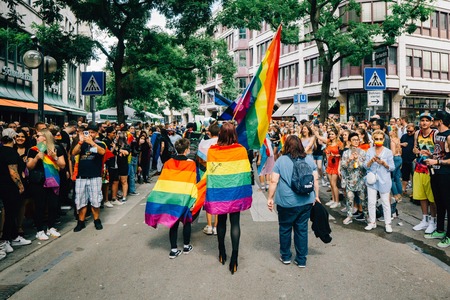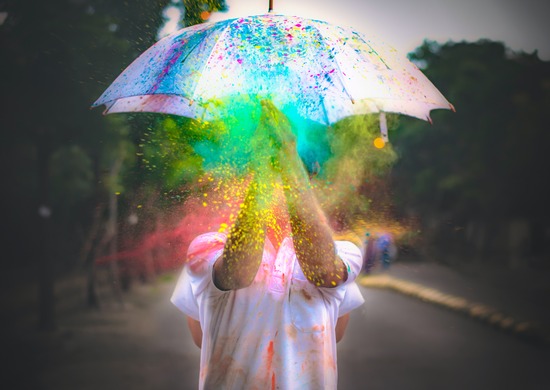Exploring the Effects of Discrimination Based on Sexual Orientation
78% of transgender and non-binary adolescents faced prejudice due to their gender and sexuality

March 1, 2023
“No one should be denied basic human rights because of who they are or who they love.” – Barack Obama
In many countries, homosexual individuals face discrimination and injustice every day. Even though there is an increasing acceptance of homosexuality in society and greater visibility in the media and public, individuals who identify as anything other than straight, often struggle to find acceptance and equality. Discrimination based on sexual orientation can have far-reaching and dire implications. These could include but are not limited to difficulty in accessing essential services such as healthcare, education, employment, and housing, perpetuating the cycle of poverty and isolation.
- The Trevor Project’s 2019 National Study on LGBTQ Mental Health revealed that:
- 71% of LGBTQ youth in the U.S experienced discrimination due to their gender and/or sexuality, with two-thirds of these youth having been pressured to change their sexual orientation.
- Furthermore, 78% of transgender and non-binary adolescents faced prejudice due to their gender and sexuality,
- 70% reported discrimination in regard to their gender expression, and
- 58% reported being discouraged from using restrooms according to their gender preference (Platero and López-Sáez, 2020).
In India, homosexual individuals have faced a long history of discrimination in legal, social, and economic contexts. Perpetuated by a desire to maintain the status quo which heavily disfavours members of the community, the marginalisation of these individuals is evident in the recent government’s reaction to the same-sex marriage petition before the Supreme Court.
The marriage petition was opposed by Rajya Sabha members, stating that legalising same-sex marriage would be “against the cultural ethos of the country,” and inconsistent with prevailing personal laws, which only recognise marriage between men and women. Claiming that the petition was “imitating and imposing Western laws,” the MP staunchly advised against allowing the same in India.
Following along a similar thought-track, the Collegium’s recommendation for appointing senior advocate Saurabh Kirpal as a judge of the Delhi High Court is long pending, owing to him being in a same-sex relationship with a Swiss National.
The discrimination can be expressed through either overt or subtle behaviours, such as using words like “gay” in a derogatory manner or a lack of recognition of same-sex couples in the legal system. This discrimination creates and reinforces negative stereotypes, and feelings of exclusion and prevents individuals from accessing the same opportunities as their straight counterparts.
The Impact of Discrimination
Stigma and discrimination against homosexual individuals can have a profound effect on their physical and mental health. They are more likely to experience depression, anxiety, and other mental health issues. For example, homosexual individuals are at a higher risk of developing cardiovascular disease, obesity, and diabetes. In a study, it was found that non-heterosexual women were more than three times as likely to have a generalised anxiety disorder than heterosexual women.
Additionally, homosexual people are more likely to suffer from substance use disorders, including alcohol and drug use. It is important to note that substance use disorders among them are a

In addition, those who experience discrimination on the basis of sexual orientation are more likely to be unemployed or homeless and to have lower educational attainment. They often face difficulty finding and maintaining employment because of their sexual orientation. This can lead to lower wages and fewer opportunities for advancement, as well as a feeling of ostracization. Education can also be affected by discrimination based on sexual orientation. Homosexual or closeted students face bullying and harassment in school, which can be a deterrent to their academic performance.
The discrimination can also lead to feelings of alienation, low self-esteem, and a decreased sense of belonging. Many homosexual adults have experienced a lifetime of discrimination and social stigma.
What can you do to reduce the effects of stigma and discrimination?
It is important to create an inclusive and supportive environment for all individuals, regardless of sexual orientation. Many homosexual individuals are still in the closet to most of their friends and family, and this will not change unless there’s a determined effort to make their environment more inclusive at every level. The fear of negative reactions or potential harm to their career causes homosexual individuals to conceal their personal relationships and screen their behaviour.
To create a more accepting environment for homosexual individuals, we need to make a concerted effort to be more inclusive in our attitudes and actions.
1. Find out about LGBTQ+ rights and issues
LGBTQ+ rights and issues vary widely around the world. It is also important to recognise that while homosexuality is a big part of the LGBTQ+ conversation, so are alternative gender identities, such as transgender and transsexual identities.
In some countries, there are laws that protect the rights and safety of LGBTQ+ people, while in others there is still significant discrimination and violence. In many places, LGBTQ+ people still face social stigma and exclusion. Read some of the key issues individuals face and stay up-to-date on the news.
2. Respect people’s identities and do not make assumptions based on stereotypes
It is important to remember that everyone is different and that each person’s experience of gender and sexuality is unique. It is important to approach conversations with an open mind, ask questions, and listen to what LGBTQ+ individuals have to say. Respect people’s orientations and identities and do not make assumptions based on stereotypes.

3. Be open about your support, show you care
Come out as an ally and support the community. You can show you are committed to create an inclusive environment at home or at your workplace where everyone is accepted and respected for who they are, by speaking up when you spot sexual-orientation-based discrimination taking place.
4. Refrain from using language that could be seen as demeaning or offensive.
Do not use language that reinforces stereotypes or perpetuates discrimination. Remember, that LGBTQ+ terminology is ever-evolving, so it is important to stay up to date and not use slang or labels that have a historically problematic usage.
5. Know your local support network
To show your support for the queer community, you can research and connect with local networks available in your workplace, college or your city. Some cities may have specific LGBTQ+-friendly events and organisations. Additionally, many colleges and universities have LGBTQ+ student organizations and support groups, as well as focused health clinics and mental health resources. Reach out to these organisations, groups and events, and seek out information on relevant health clinics and mental health resources. Demonstrate your allyship by attending events and activities, and offering empathy and assistance to those in need.
(Author bio: Bhavya Tandon is a Lecturer at Jindal Institute of Behavioural Sciences)
